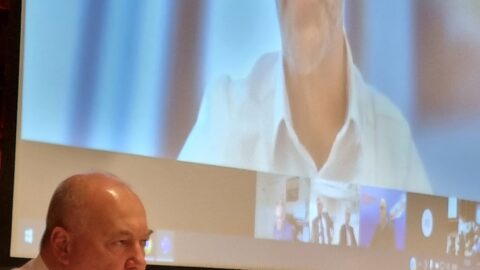Newly qualified Filipino seafarers should be able to escape a rapidly looming ban on serving aboard European Union flag ships, the Philippines labour secretary has confidently predicted.
Rosalinda Baldoz is pinning her hopes on two resolutions passed by the country’s Professional Regulation Committee, which she believes will force maritime training establishments to raise their game.
At the centre of the dispute is the quality of education provided by seafarer training academies in the country, which have undergone two assessments by the Lisbon-based European Maritime Safety Agency in recent years.
While EMSA has declined to make the documents public, it is understood to recommend that recognition of Filipino Standards of Training, Certification and Watchkeeping certificates be withdrawn unless the issue is resolved.
The final decision rests with the EU’s Committee on Safe Seas, and is expected at the end of August. EMSA officials were not immediately available to respond to calls requesting updated information on the situation.
But Ms Baldoz told the Philippine Daily Inquirer: “Two resolutions have already been adopted and published. The first will require new trainees to take the full management course, while the second will require those with existing deficiencies to address them.” She added she was confident EMSA would approve the reform proposals, and concluded: “Yes, we will be able to comply.”
Last year the EU targeted Georgia with a similar derecognition of STCW documents. But that move had little impact. The Philippines, by contrast, is the world’s number-one seafarer labour supply nation.
Any ban would prove a major headache to the European shipping industry, with thousands of freshly minted Filipino officers and ratings prevented from taking jobs on EU vessels at a time when skill shortages are already apparent in some sectors. But any ruling will not be retrospective, allowing continued use of existing seastaff.
If recognition were to be withdrawn, EU maritime administrations would not in future be able to issue endorsements of recognition to certificates of competency issued to Filipino officers. However, EMSA recognises that such a measure would be a blunt instrument, targeting an entire country instead of individual below-par schools.
However, Giles Heimann, secretary-general of the International Maritime Employers’ Committee, also believes that the Philippines will avoid the crunch.
Mr Heimann pointed out that the International Maritime Organization has reaffirmed the Philippines’ status on its flag state white list.
“I’m pretty sure that if the IMO is prepared to maintain the Philippines’ position on the white list, EMSA is likely to reach the same outcome. I know the Philippines’ government has put a lot of work in as well. Certain schools have had their activities curtailed, to make sure they do make the cut.”
In a ruling last year, the European Commission concluded that Georgia did not comply fully with the requirements of the STCW convention and withdrew EU recognition of the country’s STCW certificates. The step was taken on the back of an EMSA report from 2006, and after a request that Georgia take remedial steps.
Outstanding problems involved quality standard systems, the use of simulators and numerous certification requirements relating to both the deck and engine departments.


